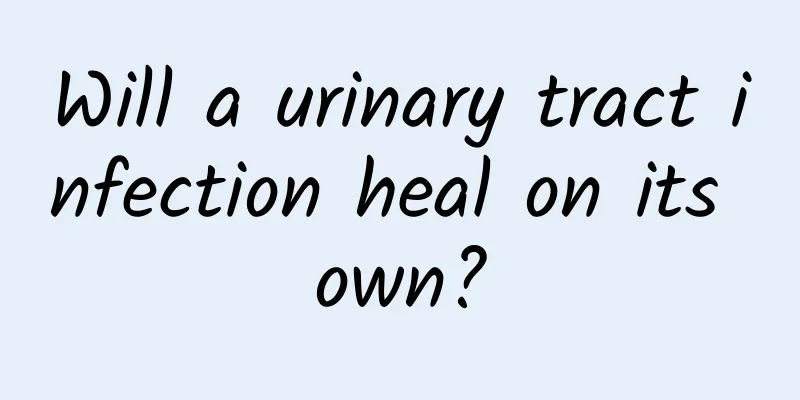Is renal puncture necessary for nephritis? What are the dangers of renal puncture?

|
When diagnosing kidney disease, nephrologists often recommend renal puncture to patients, but many patients are reluctant to do so. So is it necessary for patients with nephritis to undergo renal puncture? What are the dangers of renal puncture? Is it necessary to do renal biopsy for kidney disease? Renal puncture can reveal the truth about kidney disease, and it is currently the most direct and objective method for a clear diagnosis. Although the same kidney disease manifests as proteinuria and hematuria, its pathological types can be divided into several types. The treatment plans, treatment effects and prognosis of various pathological types of kidney disease are very different. Only by clarifying the pathological type of kidney disease can we have a deep understanding of the nature, course and prognosis of kidney lesions, whether the lesions are active and continue to develop, and avoid the toxic side effects caused by blindly using large doses of hormones or cytotoxic drugs. Therefore, kidney disease patients who have not yet resolved or are not very clear about the cause, treatment and prognosis and have no contraindications need to undergo renal puncture. To give an example, there were two young male patients in the outpatient clinic, both of whom had small amounts of protein and red blood cells in their urine. Both of them underwent renal puncture at the doctor's suggestion, but the pathological types were very different. One was mild mesangial proliferative IgA nephropathy, with fewer sclerotic glomeruli and milder tubulointerstitial lesions. The patient does not need to take special medication, only regular urine routine and kidney function checks are needed. The prognosis of this type of kidney disease is very good, and the patient can survive with the disease throughout life without developing renal failure. Another is membranoproliferative nephritis. This type of kidney disease has a poor prognosis and is not well treated with hormones and immunosuppressants. Although he has no symptoms now and his kidney function is normal, the patient must control his blood pressure to prevent it from rising and further aggravating kidney damage; he should pay attention to preventing upper respiratory tract infections and gastrointestinal infections. Once they occur, he should seek medical treatment as soon as possible, otherwise, blood creatinine and urea nitrogen will rise rapidly; he should also pay attention to eating less high-protein foods; he should not overwork himself, so as not to reduce his body's resistance. Long-term adherence to traditional Chinese medicine treatment for this type of patients can delay the progression to renal failure. You see, even though they are both kidney diseases, the treatment methods and prognosis are so different. It can be said that renal puncture allows doctors to avoid blind treatment in the fog; it also allows patients to understand clearly and have a clear understanding of their own condition. Will renal puncture harm the kidneys? There are one million glomeruli in one kidney. A small piece of tissue taken out by kidney puncture contains at most 10-20 glomeruli, which is just like plucking two or three hairs from our head, almost insignificant compared to the entire kidney. Renal puncture is the use of a special very thin puncture needle under the guidance of B-ultrasound to obtain a small amount of renal pathological tissue. During the operation, the patient lies in a prone position, the doctor uses local anesthesia and a very thin needle to perform percutaneous puncture to remove a very small amount of kidney tissue. The entire process only takes a few minutes to complete. Most patients do not experience significant pain. Patients can generally move freely the next day after surgery. However, renal puncture is a invasive examination and there are certain risks. Generally speaking, the risk of complications from renal puncture can be minimized under the premise of strictly following the indications and operating procedures. A small number of patients may experience hematuria, low back pain, abdominal distension, urinary retention, infection, etc. after the operation, but these conditions are relatively mild and usually recover after symptomatic treatment, and the possibility of leaving sequelae is low. Moreover, with the widespread development of renal puncture technology and the continuous improvement of doctors' proficiency, the possibility of serious complications will become smaller and smaller. Issues that patients should pay attention to before and after renal puncture are: Before the operation, patients should generally eat easily digestible food, practice urination and defecation in bed and breath-holding exercises, and take a warm bath to keep the skin clean. After the operation, the patient needs to lie flat on the bed for 8 hours and stay in bed for 24 hours. He needs to drink plenty of water and urinate frequently to fully flush the urethra. For a specific patient, the doctor may need to give more instructions. |
<<: What is acute glomerulonephritis? What are its symptoms?
>>: What are the common symptoms of early nephritis?
Recommend
There is always water flowing out of the lower body
Women should pay attention to their menstrual sec...
Licorice and Job's tears
Licorice is a very common Chinese medicinal mater...
Hypothyroidism
The functions of various organs in the human body...
What to do if there is a lipoma on the waist
Lipomas are soft aggregates of fat cells that can...
How long will it take to give birth if the amniotic fluid is turbid in the late pregnancy
In the late pregnancy, the amniotic fluid will gr...
Numbness in hands and feet after waking up
After waking up, you feel uncomfortable and your ...
Which diseases are more suitable for seeing a Chinese doctor?
In fact, in life, many people don’t know much abo...
Can I get pregnant after having sex after the IUD is removed?
Many people go to the hospital to get an IUD inse...
The difference between benign moles and malignant moles
Moles are a relatively common skin symptom. From ...
Why does jaw pain occur?
The jaw plays many roles in the human body. It ca...
Fungal eye infection symptoms
It is said that eyes are the windows to the soul,...
Is Lingzhi good for the heart?
Ganoderma lucidum is a food ingredient with relat...
What happens if a woman has her ovaries removed?
When a woman develops ovarian cancer or ovarian i...
Is lung cancer contagious?
Lung disease is a disease with a gradually increa...
Bone bulge behind neck
Many people's jobs require them to maintain a...









